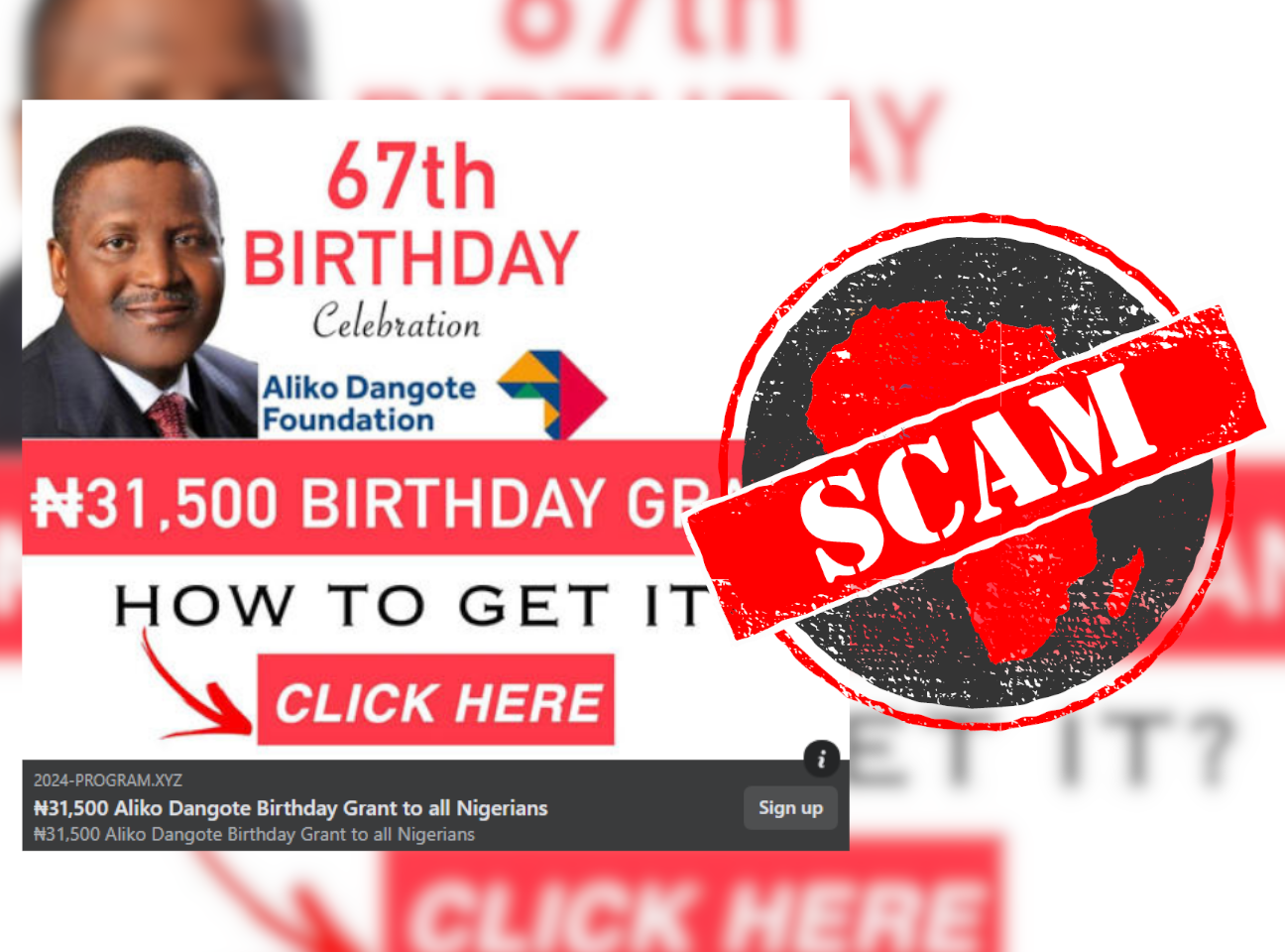IN SHORT: A message on WhatsApp and Facebook claims that business mogul Aliko Dangote is giving away N31,500 to celebrate his 67th birthday. But this is just another online attempt to scam the public.
“Don’t miss this year’s Aliko Dangote’s Birthday Grant. Send your account number now to receive your cash in 15 minutes,” reads a message circulating on WhatsApp in Nigeria.
Aliko Dangote heads the Dangote Group, a dominant cement producer and West Africa’s largest conglomerate, operating in 17 countries.
Dangote has been named one of Forbes’s most powerful men in Africa and Time magazine’s most influential people in the world.
The WhatsApp message claims that Dangote is giving away grants of N31,500 (about US$20) to celebrate his 67th birthday and includes a link where users can supposedly apply for the grant. Public records show that he will be 67 on 10 April 2024.
The same message has been doing the rounds on Facebook since January here, here, here, here and here.
But is it legit? We checked.

Beware of scam
Africa Check clicked on the link provided and it took us to a website with the text: “Happy 67 Birthday Aliko Dangote GCON.”
The website asked us to enter our bank account number and full name, and said we'd get the money “in 15 minutes”.
We filled in made-up details and were congratulated on being eligible for the funding. We were then told to share the link with five groups or 15 friends on WhatsApp in order to be redirected to the “withdrawal” page.
This is a classic case of engagement bait. These are Facebook posts that ask people to like, comment or share the message. This increases the reach of the post, but ultimately offers no reward.
The Dangote Group Foundation has debunked the claim and urged Nigerians to disregard it.
“Our attention has been drawn to a fraudulent scheme circulating on WhatsApp and social media titled ‘31,500 Aliko Dangote Birthday Grant’ … Please disregard such communications as this initiative is a scam aimed at defrauding unsuspecting people,” the foundation wrote on its X (formerly Twitter) account.
To protect yourself from scams online, read our guide.
Republish our content for free
For publishers: what to do if your post is rated false
A fact-checker has rated your Facebook or Instagram post as “false”, “altered”, “partly false” or “missing context”. This could have serious consequences. What do you do?
Click on our guide for the steps you should follow.
Publishers guideAfrica Check teams up with Facebook
Africa Check is a partner in Meta's third-party fact-checking programme to help stop the spread of false information on social media.
The content we rate as “false” will be downgraded on Facebook and Instagram. This means fewer people will see it.
You can also help identify false information on Facebook. This guide explains how.




Add new comment